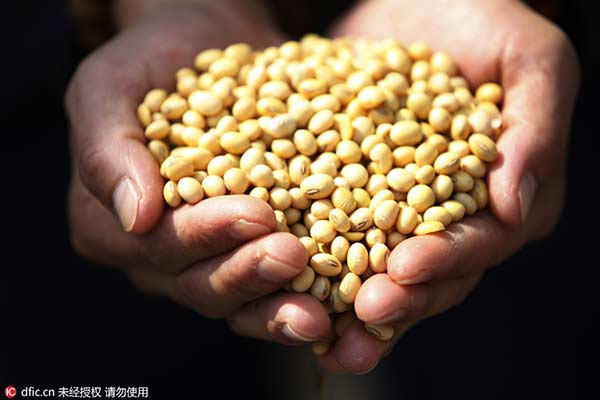
National legislators from Heilongjiang province, which is China's principal producer of non-genetically-modified soybeans, are calling for a law to set up a special zone where the planting and processing of GM plants is prohibited.
Deputies to the country's top legislature hope such a law would preserve ecological diversity, benefit farmers who plant non-GM soybeans and avoid "possible contamination" of the soybean crop by GM plants.
The size of the proposed special zone would restore the province's soybean growing acreage to its 2010 level of 4.3 million hectares, said national lawmaker Tan Zhijuan.
Tan said universities in Heilongjiang and beyond should have first call on the non-GM soybean products coming out of the special zone.
"Heilongjiang, China's largest producer of non-GM soybeans, has seen its planting acreage downsized to a tipping point of 1.4 million hectares," said Tan, who is a veteran agricultural specialist.
"This represents a drop of a staggering 66 percent in five years following the influx of much cheaper GM imports."
Nationwide, China imported 81.7 million tons of soybeans-mostly GM ones-last year, which meant more than 80 percent of its soybean consumption was met by imports, said Tan.
"China has the world's most diversified wild soybean resources," Tan said.
As a responsible country, China must protect living genetic material including seeds and tissue used for plant breeding, preservation and research, Tan said.
Although the planting of GM soybeans has not been detected so far in Heilongjiang province, there are risks that GM seeds might find their way to the fields, for example, through leakage from road transportation, Tan warned.
She said the key to establishing the non-GM soybean protection zone would be to build up an industrial chain that streamlines the planting, processing and sales of non-GM soybeans.
This non-GM industrial chain will differentiate itself from that for GM products and improve the competitive edge of the domestic soybean industry to target its niche market, Tan said.